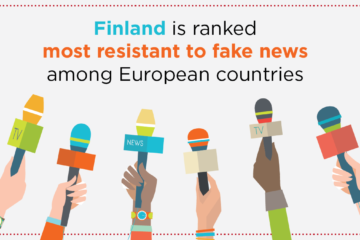Australia Drafts Action Plan to Address Teacher Shortages

Australia has released a draft National Teacher Workforce Action Plan. Developed by a working group led by the Secretary of the Department of Education and composed of Education Ministers, teachers, principals, and other key education stakeholders, the plan proposes 28 strategies to address the country’s teacher shortage. These strategies are focused in six priority areas: elevating the profession, improving teacher supply, strengthening initial teacher education, maximizing the time to teach, better understanding future teacher workforce needs, and better career pathways to support and retain teachers in the profession. In total, the plan would provide an additional AUS$328 million (US$218 million) investment in Australia’s teacher pipeline. You can read more about the plan in the Minister for Education’s press release and read the draft of the Action Plan on the Department of Education website.
Korea Shifts Education Funds to Higher Education and Lifelong Learning, as Demographics Change
The Korean government is increasing its support for higher education and lifelong learning, budgeting a total of ₩11.2 trillion (US$8.4 billion). Almost one-third of that funding (₩3.2 trillion, US$2.4 billion) is being redirected from the budget for early childhood, elementary and secondary education. The Ministry of Education explained that this shift is needed given the dramatic decline in the population of school-age students ages 6-17. According to the ministry, while per capita public education expenditure for elementary and secondary education in Korea is higher than that of the OECD average, it is lower than the OECD average for higher education, even though the birthrate is among the lowest in the world and university enrollment is high. The proposed budget still needs to be approved by the National Assembly. Read more in The Korea Herald.

Parents in England Protest Lack of Affordable Childcare

Over the last two years, England has seen a sharp decline in the number of available childcare providers, down 11 percent since June 2020, due in large part to a shortage of qualified staff combined with rising costs. In October, thousands of mothers converged on cities around England for the halloween themed “march of the mummies” to highlight the difficulties women face in reentering the workforce without affordable childcare. The government has pledged to improve access to affordable childcare and is exploring “a wide range of options,” including increasing child to staff ratios and providing state subsidies directly to parents rather than to providers. Chancellor of the Exchequer Jeremy Hunt announced last week that an additional £4.6 billion (US$5.4 billion) will be added to the schools budgets over the next two years, but there was no explicit mention of investing more in childcare. Meanwhile Labour, England’s current opposition party, has promised to make an expansion of the state’s early childhood care system a key part of its platform in the next election. Read more in Financial Times.
Estonia Creates Incentives for Teachers to Support Transition to Estonian Language Instruction
The Estonian government approved a new action plan to transition its schools to all use Estonian as the language of instruction over the next decade. Currently, the country maintains a significant sector of schools that primarily teach in Russian language. The concern with maintaining this sector is that students do not achieve the level of proficiency in Estonian they need in order to fully participate in post-secondary education and training. The plan includes financial incentives for Estonian speaking teachers to move to parts of the country with shortages of them, including higher salaries and housing subsidies. They will also expand the number of spaces in teacher preparation programs, offer more flexible modes of studying, and offer Estonian language training for Russian speaking teachers. The shift in language of instruction will start with kindergartens in 2024. Read more at ERR Estonia.





